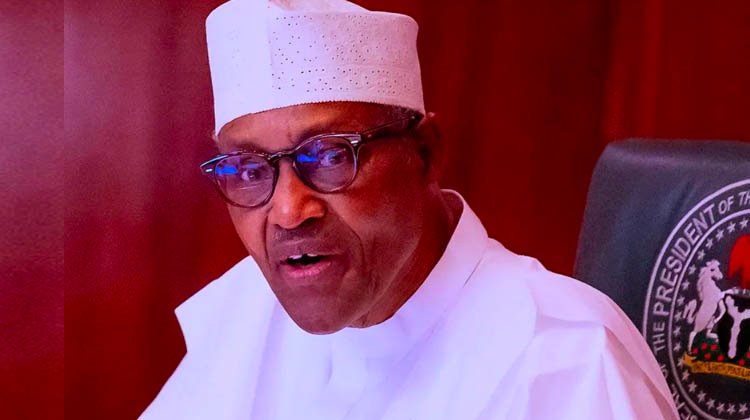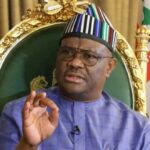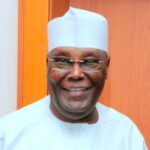
Let’s say it as it is: Mr President, Major General Muhammadu Buhari (retd.), is a very selfish man. On the face of it, he comes across as a fair-minded, patriotic leader. Patriotic he arguably is, but fair-minded he definitely is not. He probably would fail the Four-Way Test of Rotary International to wit: Is it the truth? Is it fair to all concerned? Will it build goodwill and better friendship? Will it be beneficial to all? The questions are so simple yet so interlinked that it would be extremely difficult to answer one to the exclusion of the others. In other words, they are not mutually exclusive. I will explain.
But, first, let me clarify my stance before my friends take me to the cleaners at the about-face that has turned a hailer into a wailer. My position is borne out of annoyance, considering that my one vote per presidential election in 2015 and 2019 qualified me to have been labelled a Buharist. But I am not. He became my man only because he was the candidate put forward by the All Progressives Congress, which, then, approximated to an ‘Awolowo Party’ that I loved. At any rate, in my estimation, my love for his War Against Indiscipline in his first coming as Nigeria’s military Head of State, 1984–1985, was a plus for him as a leader. Circumstances in the wake of his overthrow by the ‘Evil Genius,’ General Ibrahim Babangida would, however, demystify him and the poster boy of his regime, General Tunde Idiagbon, though the unravelling of the unsmiling Chief of Staff, Supreme Headquarters came earlier than Buhari’s.
Nigerians would probably have totally been sold the dummy that Idiagbon was a 100 per cent no-nonsense General. But the palace coup exposed his clay feet, as it made his double standards quite evident. He returned to the country from Mecca after the coup with his then 14-year-old son, which was a clear contradiction of the regime’s much-publicised policy that disqualified underage pilgrims. Buhari’s involvement in the famous ‘53 suitcases’ airport incident was indeterminate largely because his aide-de-camp, Major Mustapha Jokolo (later to become the Emir of Gwandu), was the face of the flagrant disobedience of the rules made by the government during the currency exchange programme. We have not forgotten.
Yet in 2015, we looked up to Buhari for some degree of salvation after the Peoples Democratic Party made a mess of democracy between 1999 and 2015. He was the next best thing to a strong man with the above-average capacity to clean Nigeria’s Augean stable. When the APC fielded him after three major ‘lule’ (falls), the nostalgia of WAI weighed heavily in his favour even if it was hard to forget the mess of ‘essential commodities’ before his overthrow by Babangida. It, therefore, was not difficult to align with him than with Goodluck Jonathan, whom former President Olusegun once reportedly described as the weakest ‘woman’ in his (Jonathan’s) cabinet! I believe I have sufficiently established my bonafide as a Buharist. But I digress.
The thrust of the piece is not the achievement or lack of it of Buhari as the twice democratically elected President of the Federal Republic of Nigeria. Neither is it about the politics of the race to Aso Rock in 2023. Rather, it is about my annoyance with the I-have-crossed-the-bridge, let-anything-happen-to-anyone-coming-after-me disposition of Mr President. Hailers have wrongly interpreted this as his love for fair play. It is wrong. It is a major personality flaw; it is selfishness without a better description. We believed him when he declared at his inauguration as President on May 29, 2015 that: I belong to everybody and I belong to nobody. We did because we thought he had truly heralded a new day. But we were wrong. Very wrong. He was true to his words. He belonged to nobody. But, then, he also did not belong to everybody. He belonged and still belongs to just himself. I will use his words against him to prove this point.
Mr President is taciturn. Yes. That means he is not a flippant individual. It also means that we should be able to hold him to the few words he utters, as it would be safe to assume that they have resulted from deep contemplation. We did well by reading his body language. Even his aides were not immune from ‘interpreting’ the few words of their principal. Case in point: when he spoke of the ‘political realities’ of managing the expectations of constituencies that gave him ‘97%’ votes vis-à-vis the ones that gave him ‘5%’ votes, it took all the communication skills of his Senior Special Assistant (Media and Publicity), Mallam Garba Shehu, to make Nigerians realise that “what the President meant to say (my emphasis) was that…” Fair enough. We got the point.
In 2019, Mr President was in Abeokuta on his presidential campaign tour at a time that the incumbent state governor, Sen. Ibikunle Amosun, was locked in a battle of supremacy over the choice of the APC gubernatorial standard-bearer and now incumbent Ogun State Governor, Dapo Abiodun aka ‘Eleyi’ (apologies to Bola Tinubu). Despite being an unintended beneficiary of the angst of the Amosun group, Buhari campaigned for votes to return him to office for a second term as President. Then, regarding the governorship ticket, he said: “On the 2nd of March, you can choose whomever you like across the parties. This is your right, so, there is no problem about it. I have no problem about it and you shouldn’t have problems about it.” What better definition of selfishness do you seek?
Though furious, I was especially amused by the August 24, 2022 statement issued by the president’s spokesperson, Mallam Garba titled: “For 2023, No Villa Candidates, only APC Candidates.” It described the President as a “disciplined soldier” of the APC who would not betray or undermine the party “by supporting candidates other than those of the APC.” In street lingo, the statement ‘get as e be.’ It read like an attempt to puncture any perception of a pattern of behaviour by Mr President. Although it was clear about the President’s seeming distaste for what politicians like to describe as ‘anti-party activities’; in the lead-up to the 2023 general elections, one is tempted to see it in the light of a ‘letter of comfort’ issued to pre-empt another Abeokuta-like eruption of the ‘O lule’ variety. The swift response of the APC presidential standard-bearer, Asiwaju Bola Tinubu, appear to support this perspective: “I like the statement of Mr President a few days ago—firm, concise, straight to the point and bold as a leader of our party. We should commend the President for that statement for his commitment and loyalty to the party and for being a true party leader.” As it were, Tinubu merely tightened the noose around Mr President’s neck. Figuratively. Whether the President would swim or sink with APC candidates in 2023 remains to be seen.
If, in reading between the lines of both statements, one is wrong in seeing a correlation between Buhari’s self-serving ‘vote your conscience’ sermon in Abeokuta on March 2, 2019 and Tinubu’s ‘don’t-distance-yourself-so-I-don’t-force-your-hand-again’ explosion in Abeokuta on June 2, 2022, then I must be the most brilliant conspiracy theorist in Nigeria. But, as history has consistently shown, there is hardly ever any smoke without fire.





